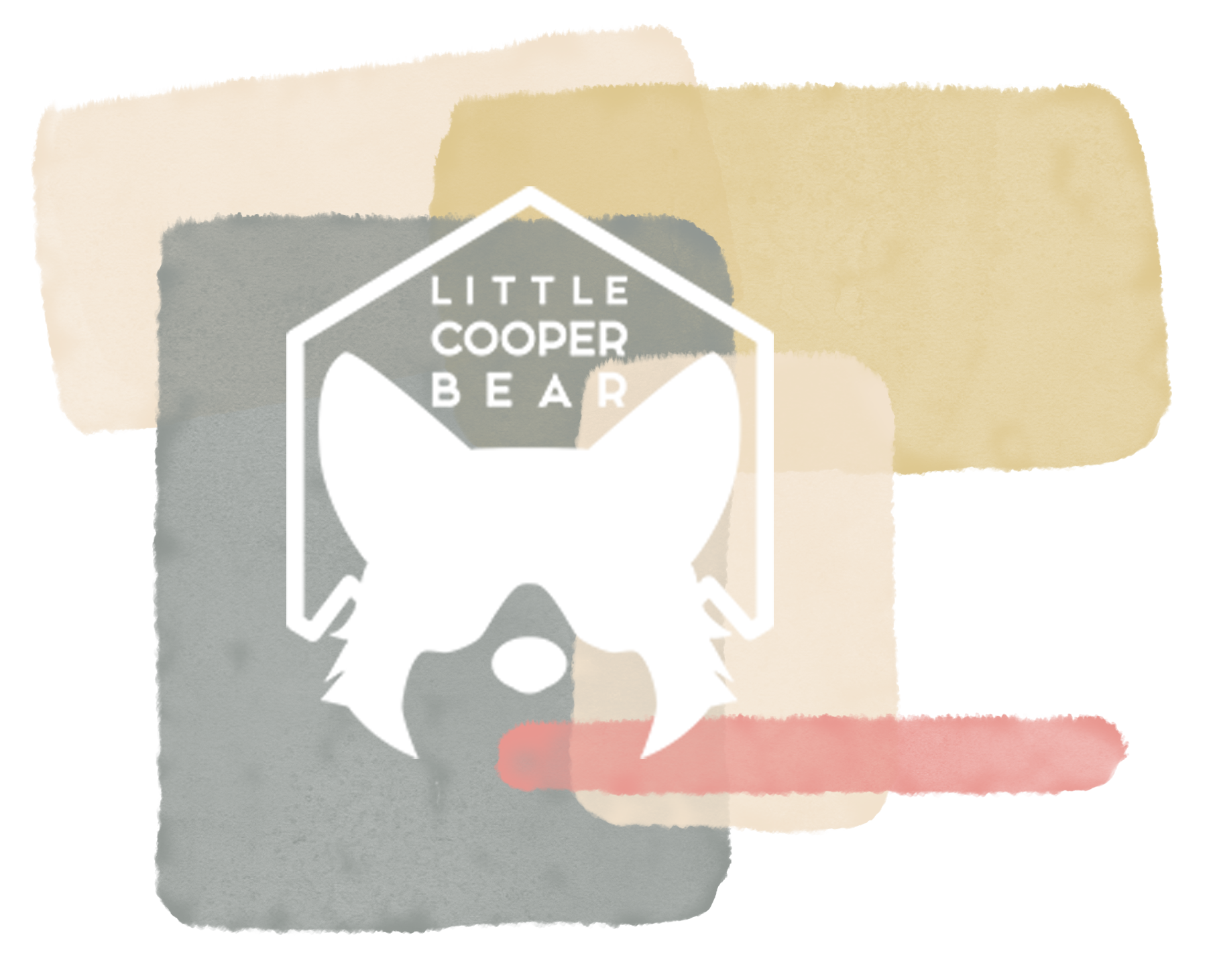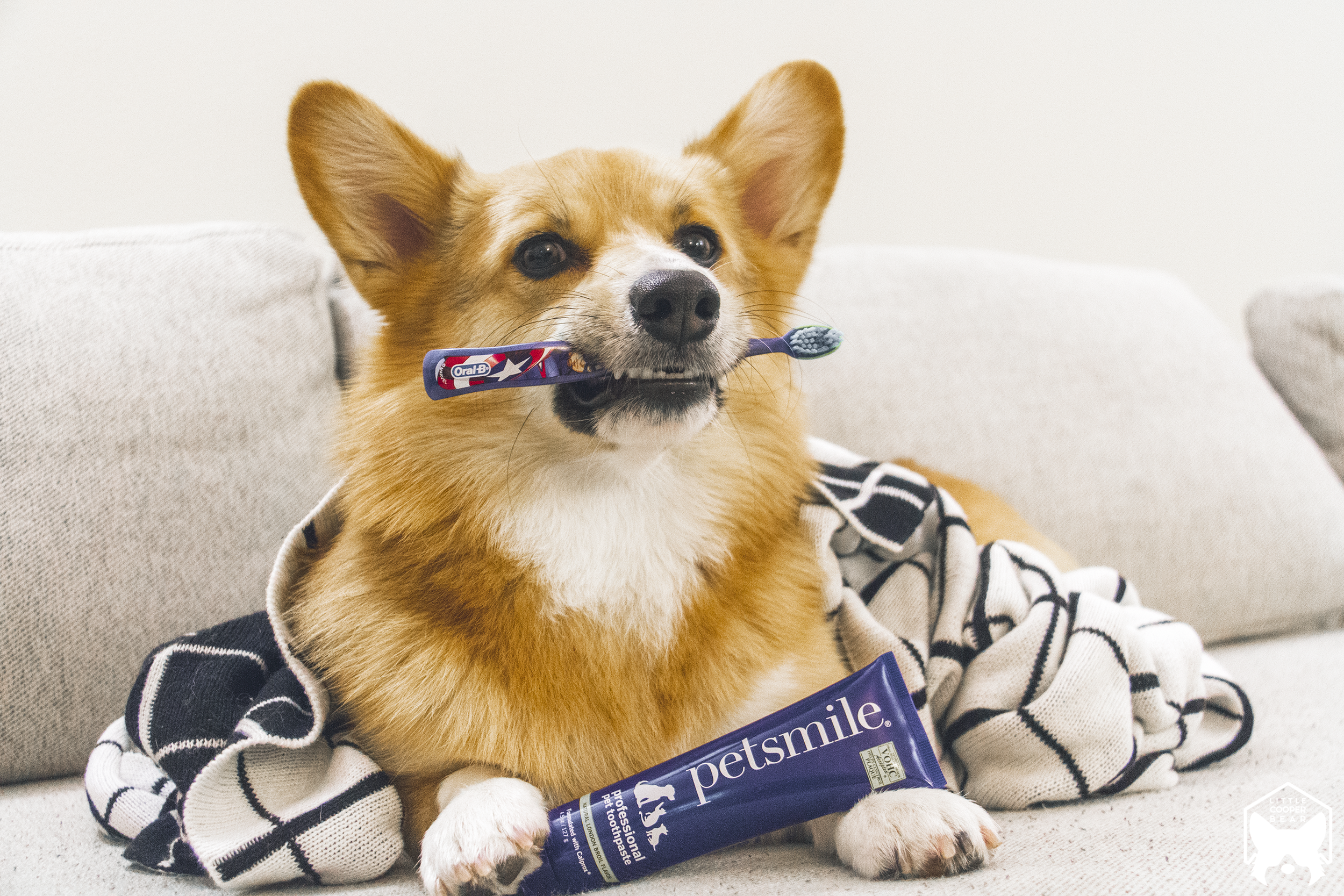Tooth Extraction: Dog Dental
Well, it happened. Cooper had to get a tooth extraction. All because he was aggressively chewing on a cow hoof. To be honest, it could have been prevented. I thought I was doing a diligent job at taking care of his teeth but I could have done a better job. Now that I know better and paid quite the hefty sum for his tooth extraction, I hope to share this experience and provide some sound advice throughout the ordeal.
How It Happened
Back in February, we had an in-home Vet check-up with Your Fuzzy and our Vet, Dr. Robert Trimble, noticed a small chip on Cooper's right maxillary 4th premolar tooth. At the time, I didn't think too much of it. Cooper wasn't in pain nor did he showed any signs of discomfort. I continued to provide Cooper with chews and tried to brush his teeth on the daily (it became more of a 3-4 times a week cadence). Some of Cooper's main chews were cow hooves, cow ears, bullysticks, and greenies. Nothing too crazy. I quit antlers a while back and Cooper no longer showed any interest in them.
Fast forward to a few months, I scheduled an anesthesia free teeth cleaning (which I later cancelled) with a local Vet dentist across the Bay Bridge. We had to do an in-person consultation prior to the actual teeth cleaning. During the consultation, Dr. Maia told us more about Cooper's 4th premolar tooth. The exact same tooth that was pointed out to us earlier by Dr. Trimble. She told us that Cooper's right maxillary 4th premolar tooth was chipped to the point where the pulp was exposed, this could lead to potential problems in the future for his dental health if not taken care of soon.
So she presented to us three options that we can take:
- Ignore it, leave the tooth alone and let it get worse over time then figure it out when that time come.
(NOT an option for us AT ALL) - Root canal therapy, which is a surgical treatment used in dogs that involves the removal of the infected inner pulp.
- Tooth extraction, where the actual fractured tooth would be removed.
I took this information and wanted a second opinion from our own Vet. Granted, I didn't want to go with option 1 because that's just pure negligence. Also, I didn't want to go with option 3 because Cooper is still very young and I didn't want to have to take his favorite tooth away.
Dr. Trimble gave us the same options as Dr. Maia, he also suggested that I take Cooper to the VCA to see a specialist about his fractured/chipped tooth. At this point, I was already set on a root canal therapy. But it never hurts to get as much information as possible from different reliable sources.
I called the VCA located in the Mission District in San Francisco and booked an appointment to see a specialist on animal dentistry. Before the appointment, I also called Cooper's pet insurance (Trupanion) and requested a pre-approval claim for the root canal therapy and tooth extraction. I did this in order to ensure that whatever option that I ended up choosing, Cooper will get the care that he needs. My advice for all pet parents out there is to get your pet on insurance because you'll never know what's going to happen.
We met with Dr. Zacher at the VCA from the dentistry department on July 14th and she took a thorough look at Cooper's fractured tooth. From what she told me, since the pulp is exposed, it became vulnerable to bacterial growth. The root canal of a tooth is the perfect environment for bacteria to thrive on being that it's warm and moist. At this point, the tooth was already dead from what I was told. However, we wouldn't know for sure without x-rays.
Dr. Zacher provided a more detailed explanation about root canal therapy since this was my first time dealing with such a case. In a nutshell, root canal therapy is an endodontic treatment for vital (living), dying and non-vital (dead) teeth. Teeth that are discolored, fractured, or abscessed can be saved by a root canal therapy instead of a dental extraction. The infected pulp (nerves and vessels that are in the tooth) would be removed, then followed by a cleaning and removing infections within the tooth. In order to prevent any bacterial growth, the root canal system would then be filled with an inert material.
Once the consultation was over, I scheduled the root canal therapy procedure for July 25th. As it turned out, we had to rescheduled the procedure due to Dr. Zacher having an emergency. We had to push it back to August 30th with a different dental specialist who would be the attending clinician.
Tooth Extraction
Prior to the supposed root canal therapy procedure, Cooper had to fast the night before. I took him in the morning of his procedure where we had a consultation (our fourth one at this point) with Dr. Soltero. She told us the same thing in regards to root canal therapy and what to expect. Depending on what the x-ray shows, the root canal therapy may or may not happened and it could potentially lead to a tooth extraction. But she said she would give a call before any procedure starts.
Unfortunately, Cooper's tooth was fractured periodontically and endodontically resulting in a complicated crown root fracture. The x-ray shows that the fracture extended subgingivally and involved the furcation of the buccal roots. The root canal therapy is an endodontic treatment so even if Cooper did get a root canal, he could be at a risk for periodontal disease. I made the call to have his tooth extracted at this point because the tooth can no longer be saved with how severely fractured it was.
The bill came out to a total of $2,233.00. Yes, it is THAT expensive for a tooth extraction. A root canal therapy can go up to $3,900.00. The most expensive part of either procedure is the anesthesia (each additional hour cost +$100 with the first one being $500). In addition, I mentioned before that I called our pet insurance, Trupanion, for a pre-approval claim and they laid out the coverage (they cover 90%) prior to any consultation. Luckily, I didn't end up paying the full amount for Cooper's tooth extraction (thank goodness!).
Recovery
Cooper recovered quickly from the anesthesia, it took him about a day to bounced back to normal. He had numerous stitches in his mouth and all of the stitches are dissolvable (3-5 weeks). Dr. Soltero recommended feeding only soft food for 2 weeks so Cooper ended up eating Honest Kitchen instead of his Nom Nom Now for about a week and half. He was to avoid chewing on hard treats, toys, balls, sticks, etc. during the recovery period.
In terms of pain control medication, he was prescribed to two. One was the Rovera 25mg chewable tablet that was to be given every 24 hours for oral discomfort. He enjoyed eating this one. The other was the Tramadol 50 mg tablet that was to be given every 8-12 hours for 5-7 days. We actually discontinued the use of Tramadol after 2 days since it was too bitter for him to consume and I didn't want to open his mouth.
Other than what was recommended, I restricted fetch activity and trips to Fort Funston or any sandy area in order to prevent potential infection. One thing I know he loves to do is play fetch and the dirty ball wouldn't have been good for his healing mouth.
Preventative Care
We went back for a post-check up on September 20th, 3 weeks following his tooth extraction. Dr. Soltero examined Cooper's extraction site and declared it as fully healed without any infection or discomfort. Cooper was sent home with a Greenie, Hill's oral care chew, and a healthy mouth water additive sample.
Now that the tooth extraction site is fully healed, we can continue to institute daily teeth brushing in order to prevent any plaque and calculus formation. This time around, I am ensuring that all the treats, toys, and chews given to him are safe for his mouth and chewing enjoyment. Cooper tends to be an aggressive and meticulous chewer.
Here's the golden rule that Dr. Soltero gave us: If you can't make a fingernail mark/dent on a chew, don't give it to your dog.
The main reason for this whole entire tooth extraction ordeal was the fact that I allowed Cooper to chew on something that was bad for his teeth (the cow hoof). So here are two short list of recommended chews and chews to avoid that may help you decide on what you want to give to your pet in order to keep them occupied. The lists came from personal experience and recommendation from experts and close friends.
CHEWS TO AVOID
- Antlers/Water Buffalo Horns
- Himalayan Yak Chew
- Cow Hooves
- Nylabone/Benebone
- Rawhide
RECOMMENDED CHEWS
- Cow ears
- Beef Trachea
- Greenies/Flavored Dental Chews
- Bullysticks
- Tendons
- Turkey Necks
- Raw Duck/Chicken Feet
Please make sure your pet is supervise at all time when you give them a chew.
One of the thing I didn't mention on either list is raw bone marrow. This is under your own discretion whether to give to your pet. I occasionally give Cooper raw bone marrow since I know he'll only go for the marrow and not necessarily chew on the bone. Again, when I give him a bone marrow, I watch him very closely. Although I don't give him bone marrow all the time and in the future, it'll be a rare occurrence if he gets one.
If at any time you hear a disturbing crunch and/or excessive grinding noise, take the chew away.
A how-to guide in brushing teeth at home.
Teeth Brushing
In order to manage Cooper's pearly white teeth, I am making sure to incorporate daily teeth brushing to my own night routine. I keep Cooper's toothbrush and toothpaste next to my own so that once I am done with my routine, I remember to do the same for Cooper. The key to management of gum disease for dogs is through preventative care.
Cooper tolerates and accepts me brushing his teeth. He typically remains pretty calm and if at any point he feels uncomfortable, I stop the brushing immediately. I also allowed him to lick the toothbrush in between brushing so he sees it as a reward.
We're currently using a soft toddler's toothbrush that I got on Amazon from Oral-B and toothpaste from PetSmile by SuperSmile. Previously, I was using C.E.T toothpaste by Virbac. The PetSmile toothpaste is a little pricer than the C.E.T. by $10 but both should be effective in keeping your pet's teeth clean.
Cooper with his current tooth brushing products. PetSmile toothpaste has the seal of approval from the VOHC.
Before you finish reading, here's a useful link for a list of products that are VOHC (Veterinary Oral Health Council) accepted. The list was recently updated in September 2017.
VOHC Accepted Products for Dogs
And there you have it, our entire experience in regards to dog dental within the past couple of months along with preventative care. Let me know your thoughts. If you had any experiences with these type of situation, I would love to hear about them.
Thanks for reading!






